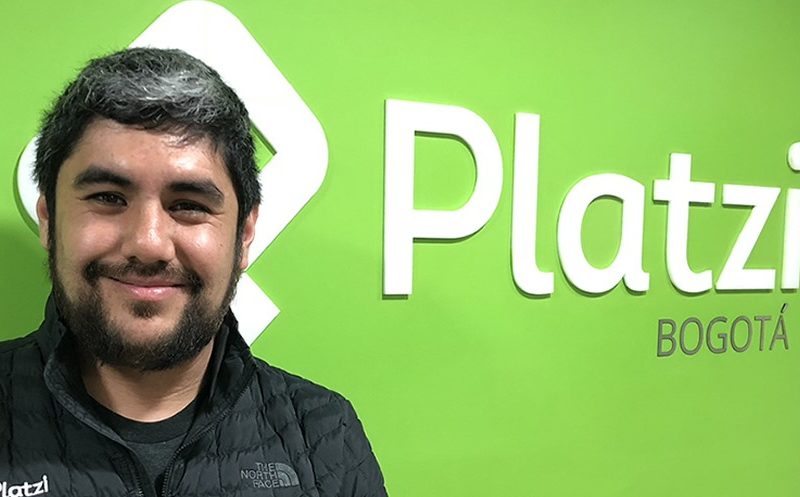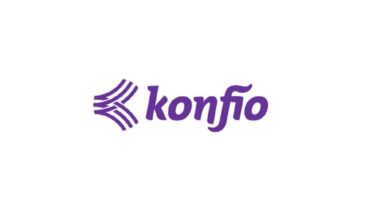For this week’s episode of Crossing Borders, we’re revisiting one of our greatest hits episodes featuring Platzi’s Christian Van der Henst.
How did a curious young web developer from Guatemala become one of the first Latin American entrepreneurs to enter YCombinator? Christian Van der Henst fell in love with the internet in the 90s when he realized he could use it as a tool to communicate with the whole world. He knew he wanted to share his knowledge with people and collaborate with a global tech community long before Latin America’s tech revolution even started.
Christian is a lifelong entrepreneur, but he didn’t realize it until he was studying his Masters in Barcelona while running a massive online platform, Maestros del Web, a proto-Stack Exchange for Latin America, at night. He eventually put his passion for education into Platzi, alongside Colombian co-founder Freddy Vega, and helped grow the company to US$3M in yearly revenue in just four years. In this episode, Christian talks about how he transitioned from Maestros del Web to Mejorando.la (before they rebranded to Platzi), how Platzi became the first startup serving Latinos to enter YCombinator, and why entrepreneurship is so important in Latin America right now.
A curious web developer – with 10 million monthly page views
Maestros del Web, Christian’s first real business, started as a pet project for Christian to communicate with and learn from other web developers around the world. In the early days of the internet, the few portals that existed to help web developers solve problems were all in English, and Christian wanted a solution for his local community, too.
While the site was a huge success, Christian could barely manage his four-person team remotely as he studied for his Master’s in Barcelona. He had accidentally built a huge community online – and realized he loved the feeling of bringing people together to talk about tech. Learn how Christian jumped from Maestros del Web to Platzi by befriending a competitor and starting to dream bigger.
From 100 audience members to 1200 viewers
Platzi started out as an in-person course until Freddy and Christian realized that almost every attendee (including themselves!) was traveling to join the class. Platzi quickly migrated online, and the first online course had more than twice as many students as the co-founders expected. The server crashed and the first streaming was a failure, says Christian, but the audience was forgiving.
Why? Transparency has been a key to Platzi’s success from the start. The founders explained their tech problems to their users, fixed them, then kept providing classes. In this episode of Crossing Borders, learn why Christian thinks failing the first live stream made Platzi stronger and more resilient.
If you really want something, keep trying
Platzi was rejected from YCombinator the first time they applied. Christian almost didn’t apply again, until a mentor mentioned that he should give it another shot. Platzi is now known for being the first fully Latin American company to enter the accelerator.
Christian thinks that every startup should apply for YC, just as an exercise to find out if what they are doing is worth building. He encourages Latino founders to ask for what they want (a tip he’s learned from working in San Francisco); in Silicon Valley, trying hard and failing is better than never trying at all. That’s how Platzi has reached US$3M in revenue a year, and still offers free courses on YouTube.
Platzi has already become an internationally-recognized brand for online education as they help the Spanish-speaking market become digitally native. The platform is an example of what it means to listen to your local community and build a product for them before launching it globally. Christian Van der Henst is passionate about building entrepreneurial communities in Latin America, and Platzi is just one of the tools helping local entrepreneurs get started across the Spanish-speaking world.
Outline of this episode:
- [1:54] – Splitting time between Platzi offices in Bogota, San Francisco, and Mexico City
- [2:31] – What does Platzi do?
- [3:46] – Were you always an entrepreneur?
- [4:57] – How did you get started with Maestros del Web?
- [5:56] – Growing up in Guatemala
- [8:40] – How Christian fell in love with the internet at a young age
- [11:26] – Going from Guatemala to Barcelona
- [12:37] – What were some of the biggest challenges you had to overcome going from 0 to 10M page views?
- [15:42] – What was like going from being a solo founder to teaming up with somebody?
- [16:55] – Why Mejorando.la went from live classes to streaming and YouTube
- [18:24] – Why mistakes are good for learning
- [19:39] – Why Latino founders should learn to put themselves out there and stop fearing failure
- [22:53] – Rebranding: Your users care more about product than name
- [24:15] – Why they targeted the Spanish-speaking market
- [25:23] – What was it like to enter YCombinator as the first fully Latin American company?
- [27:30] – Biggest surprises participating in YCombinator
- [29:19] – Why Colombia is leading the way for international investment in LatAm
- [31:17] – When did you know Platzi would grow to be something big?
- [34:25] – Why keep an office in San Francisco?
- [36:24] – What advice would you give to other Latin American founders when they are trying to raise money?
- [38:02] – Why should more US VCs be looking at companies from LatAm?
- [40:26] – Why fintech is so important in LatAm
- [42:53] – What’s your advice for people that want to start learning to code?
- [44:05] – If you could go back to when you were first starting Mejorando.la, what advice would you give yourself?
This episode of Crossing Borders is brought to you by AWS Startups.
AWS Startups supports entrepreneurs in Latin America across multiple programs, including Cloud Credits to help startups test features and extend runway, technical support to help optimize AWS solutions and integrations with your product, and – on the business side – help you build strategic contacts with investment funds, accelerators, and corporations to accelerate your growth.
For more information, check out aws.amazon.com/es/campaigns/founders, where you can access $1,350 in AWS credits for your startup.



